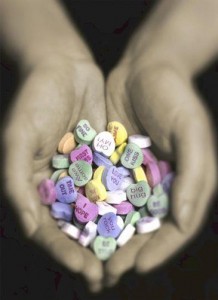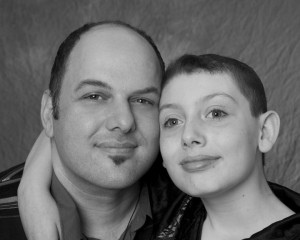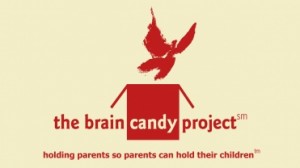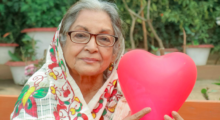Henry Allen co-founded The Brain Candy Project along with his son Cameron, who was diagnosed with brain cancer at age 11. The Brain Candy Project is a nonprofit organization that helps support parents and guardians of children suffering from critical illnesses.
Kelly: For those readers who may not be familiar, what is the Brain Candy Project and what are its goals?
Henry: Our foundational purpose is to provide a support system for parents and guardians who are living in the hospital with their kids. We also have a number of other initiatives we’re developing. Because there’s no real cultural recognition for a parent who has lost a child, we’re trying to develop language around that; so for those of us who have been through it, we can develop a sense of not only our own identity, but also allow others to be sensitive to parents who have outlived a child. I’m also trying to get a study funded in PTSD in parents who have been through a critical illness or have had a child go through it. Whether or not they survived, you’re transformed. Things will trigger anxiety, depression, and more, and nobody’s talking about that, so I thought we should.
Then there’s the Brain Candy magazine, which was my son’s brainchild. About a year into his disease, he wanted to create this magazine to bridge children who are going through not only this but other diseases. He wanted to let them know that they are not isolated; he wanted them to be able to share their stories, their jokes, and to be able to acknowledge their nurses and nurses’ aides who have been on the front lines with them. One thought was to have an online magazine, which is certainly more accessible, but in my son’s case, his surgery affected his eyes, so he felt a paper magazine would be better and would be good occupational therapy for these kids.
Kelly: How were you able to make it through such a trying process as watching a loved one experience living with cancer? What kept you going?
Henry: I’m a cancer survivor myself, and I never thought I’d say this, but I’m grateful for having had cancer. It allows me to have walked with Cameron in a way that I wouldn’t have been able to if I hadn’t gone through i. It bonded us in a very special way. There was no anxiety, there was peace and grace.
He [Cameron] did blogs, he did Youtube videos; he really owned his disease. He chose to live with joy. He lived in the moment. For him to have gone through those two years and still have found joy, it really helped my process of releasing him to that and really understanding that we’re all gonna go. People say it’s unnatural, but it wasn’t for me, it was natural. I just know that people go when they’re meant to go. That understanding has helped me through it, and also understanding that my relationship with him hasn’t changed. I still grieve, I still feel the pain of his absence, but it transforms you. It resolves itself. I was able to channel my energy into service, and that’s how this foundation really came about. Even though he and I started it together, after he passed it gave me a focus for that energy, so I’m able to really put myself into it. I also have a theater company here, and I work with children, so that’s been how I channel my energy. I’m very passionate about service and art, and that helps.
Kelly: I read on your website about how there were no pediatric brain tumor support groups in the entire state of Minnesota when Cameron was diagnosed. Why do you think that was?
Henry: I think part of it was that it’s so rare. I think there’s not enough awareness about it culturally. We hear a lot about breast cancer, which is understandable, but we don’t hear about pediatric brain tumors. I think it’s a very fast-growing problem in this world. And aside from a few St. Jude’s commercials, it’s not a very heard-of problem culturally. But parents are in desperate need of support, and the children are too. There are not even statistics for pediatric brain tumors, because they’re so rare; they get lumped in with adults’ brain tumors. It would be great if more money was put toward finding the cause rather than just the cure. There’s a lot more conversation that needs to be had than is being had.
Kelly: What’s the response been like from families of other children with brain cancer and other critical illnesses?
Henry: The response has been tremendous. I put some surveys up on the website for parents who have lived in the hospital with their kids, and out of hundreds and hundreds of families, 75% of the families say that the number one thing they need while in the hospital is connections to other families who are going through the same thing. Because of HIPAA, you can’t approach other families. So already you’re isolated because you’re not in a community. You have nobody bringing you a hot meal, nowhere to sleep. There’s nothing in the hospital that will find ways to bridge these parents.
One of the things I’ve done with the Brain Candy Project is I’ve created a virtual retreat through Second Life, but it’s a tool and it avoids the pitfalls of the HIPAA rules in the hospital. It’s really a support group kind of atmosphere. I think that this retreat can solve that problem to a degree. I also have grief therapists who are ready to volunteer and be of support as they’re going through that. It’s a really tough issue that needs to be talked about in our society.
 Kelly: How can readers get involved?
Kelly: How can readers get involved?
Henry: Well, this is a global movement in family-centered hospital care. The challenge that I’ve had is the red tape. Doctors, nurses, and social workers love the idea, but attorneys don’t; they say, “What’s in it for us?” So that’s what I’m trying to do, is solve the question of how we get into hospitals. I need volunteers, people who are on board with this vision to contact me and say “Let’s do this together.” The fundraising has been difficult. Everything has been me solo up to this point. Imagine if people got together and established endowments at these hospitals; at University of Minnesota Children’s Hospital, we got an endowment to pay for parents’ parking. We need more of that. If people want to make a donation for the holidays in someone’s honor, we have our memorial giving page. I think that’s a really beautiful way to honor somebody. I think the more people that get involved, the better. It’s going to take a movement. People can have local fundraisers to raise awareness and funds. The money is very important, but it’s not the most important; the most important part is that people are talking about their experiences and asking questions. Also, get the kids involved; look around your house and find the cause: what are you eating, etc. that could be harmful. Get the kids aware of practices. This way parents can improve their quality of life and avoid losing their children.
Kelly: What advice do you have for SevenPonds readers who may be living with a critical illness themselves, or have a loved one that is?
Henry: My advice is a reminder that you are your child’s best advocate, that you as the parent or guardian deserve to be a part of the core team with the doctors and nurses. Really ask the questions and make sure that you are getting the answers that you want. Parents, learn about nutrition, learn all you can learn. Subscribe to medical journals. Study about your child’s medical condition. Work with your doctors. You are part of you child’s medical team. Don’t allow yourself to be steamrolled because your doctor has to get to his golf game. If the doctor’s not giving you the answers you need, find another doctor. Keep going until you find someone who will help you. Pursue all means of healing. Explore complementary medicines and remember they are not alternatives. It’s not an alternative to anything. It’s to complement what’s being done.
Kelly: Thank you so much, Henry!

 How to Deal with the Loss of a Child? An Interview with Henry Allen
How to Deal with the Loss of a Child? An Interview with Henry Allen





 “Summons” by Aurora Levins Morales
“Summons” by Aurora Levins Morales
 How To Dispose of a Body In Space
How To Dispose of a Body In Space














